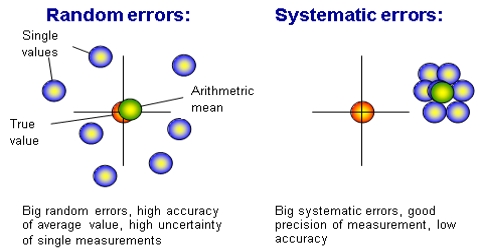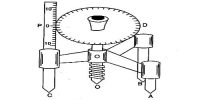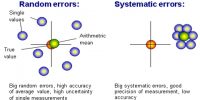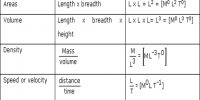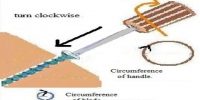Random errors: Inspite of taking enough care to avoid different errors measurement of a quantity again and again appears to be different. This type of difference in measurement may occur for two reasons;
(i) due to the error in the observation of the observer or
(ii) due to the change of condition of the instrument while taking measurement.
For example, during the determination of acceleration due to gravity, T is measured by a stop watch and l is measured by a metre scale. If the slop watch is not rightly started or stopped while noting time, then error will appear in T. During the measurement of l if the index does not coincide with a particular mark but stays between the two marks, then it is difficult for the observer to take correct reading, consequently error will come in l. These types of errors are called random errors.
Remedy: Random errors are variable. If the measured value is greater than the actual value, then the error will be positive and if it is less, then the error is negative. To remove this type of error several readings should be taken and their average is to be found out.
